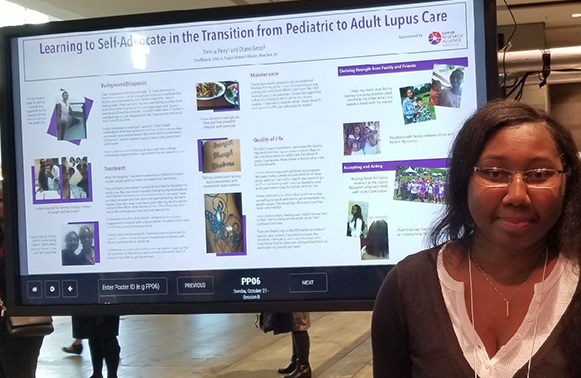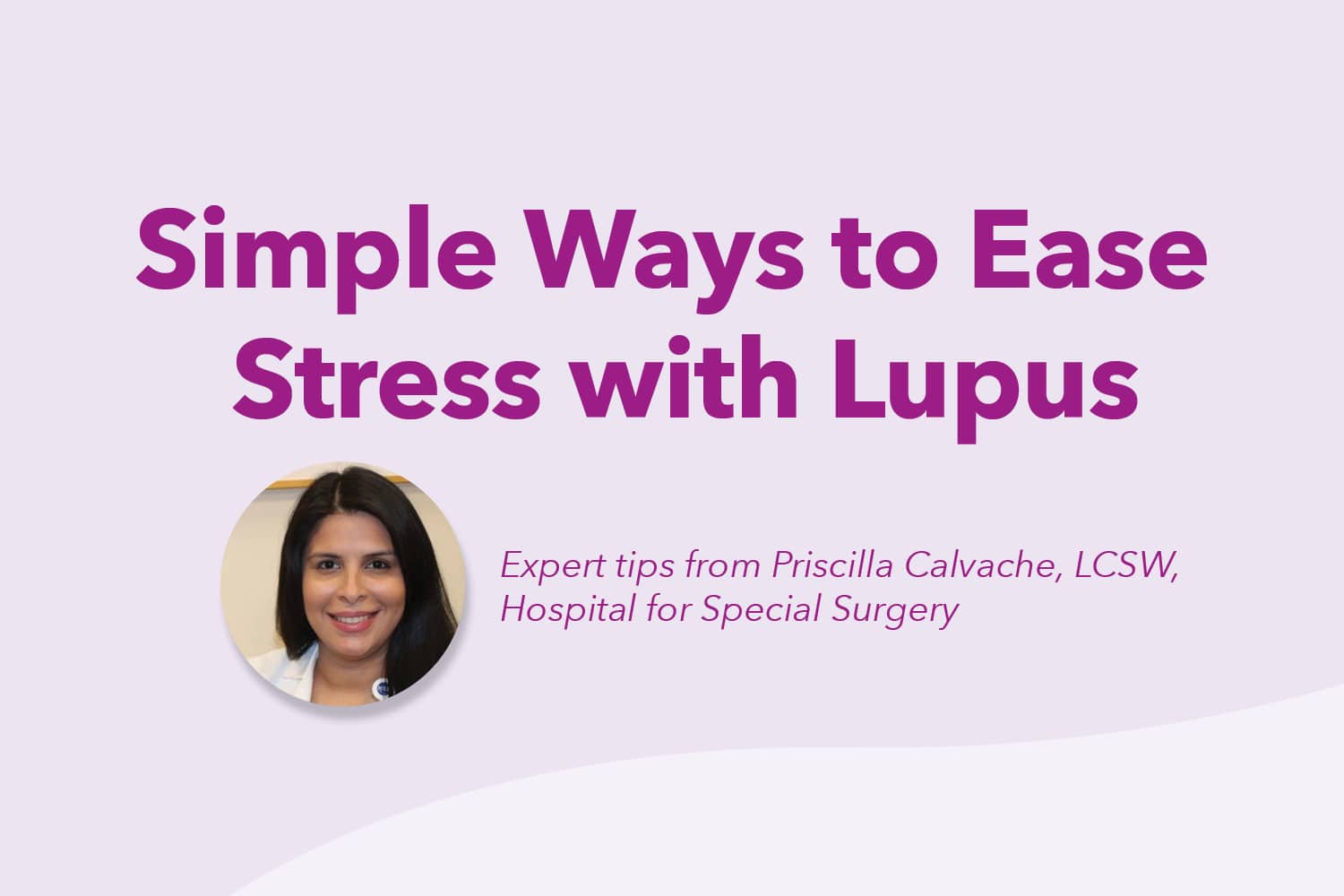Learning to Self-Advocate in the Transition from Pediatric to Adult Lupus Care by Denita Perry

Learning to Self-Advocate in the Transition from Pediatric to Adult Lupus Care by Denita Perry
November 29, 2018
Making the transition from being a young person with lupus to an adult is something that many of us go through, and it’s not always an easy process. I recently shared my story at the American College of Rheumatology Meeting in Chicago. It was a great experience. Not only did I get to speak with rheumatologists and researchers, but I was also excited to meet other people with lupus. They understand what I’m going through every day.
Background/Diagnosis
I was diagnosed with lupus at age 15. I was starting my sophomore year of high school and noticed a rash that the doctor said was eczema, but I knew it was not. I wasn’t feeling well, I had pain and my hair was falling out. My mom took me to the hospital and I was diagnosed with lupus. I was hospitalized for a month. I couldn’t take care of myself, I needed help to get dressed and eat, I was sore to the touch and I lost 20 pounds.
It was information overload. I was 15, I didn’t really understand what was going on. At first, I didn’t always take my meds. I was embarrassed. My peers didn’t understand. Whenever I tried to explain lupus, it was a pity party that I didn’t want.
I was a dancer and on the track team with two college scholarship opportunities. Lupus took that all away from me.
Treatment
After the hospital, I started treatment at a children’s health center, began getting better and went into remission.
The problem came when I turned 20 and had to transition to adult care. My new doctor started changing my medications, and I ended up hospitalized several times in one year. I was on methotrexate and folic acid and started having stomach issues. One day I was in so much pain that my doctor said to come to the office. After laying on her office floor she sent me to the emergency room without seeing me.
I never went back to that doctor. A friend of my mother suggested a hospital with a lupus center. I researched online and have been going there ever since.
I had to learn to be an adult. I learned how to advocate for myself. I used to keep things to myself and not share with my doctor but learned to speak up.
For the 5 years in pediatric care I saw the doctor regularly and had lupus under control. Then in the initial transition to adult care, for about 4 years, I got worse. I had multiple hospital visits a year and seemed like I would never get better. I wasn’t comfortable or happy with the physician I was seeing or the treatment I was receiving. I even independently stopped taking my prescribed medication. Now I have a doctor who I can be honest with. I can call her at any time, it’s like she’s a second mom. It’s worth the 1-2 hours it can take to get downtown.
Maintenance
I have done both physical and occupational therapy for my joints. I have changed how I eat, cutting out junk food. While I can’t run like I did before lupus, I do exercise. I know the signs that a flare is coming on and I get to the doctor sooner. I learned to explain what I need. Now if I end up in the ER I can advocate for myself.
Quality of Life
I am in school now and will finish my program this year. I take classes and am able to do easy temp work so I can call in day to day and not go in if I’m not feeling well. I am on disability and work part time to pay for school and my car.
I have potential job offers after graduation that are willing to work with me to accommodate my health issues. The disability office at school has been very helpful.
I was always angry, feeling sad, I didn’t know how to feel, had so many emotions at once, I felt confused and lost.
That one fateful trip to the ER made me realize I had to take control. I learned to accept the situation, manage it, and make the best of it. I now know how to take care of myself and how to work with my healthcare team.
Everyone’s lupus story is their own. These are some tips that I found helpful in transitioning from pediatric to adult lupus care:
- Find a rheumatologist in adult care before leaving your pediatrician.
- Communicate with your doctor
- Take your medication – every day!
- As you get older, you’re less likely to have someone looking over your shoulder and telling you to take your medication, so keep your support system close. If you’re looking for support online, the Lupus Research Alliance has a lupus Community forum where you can find others to share stories, ask questions, and talk with. There are also other online resources available.
- Vacations with family relieves stress and boosts my spirits. It also helps to laugh and be loved!
- I’m no longer able to dance myself, but supporting my niece’s dance lessons brings me great joy.
- Accepting and Acting – I had to accept hair loss and breakage, so I cut my long hair much shorter.



